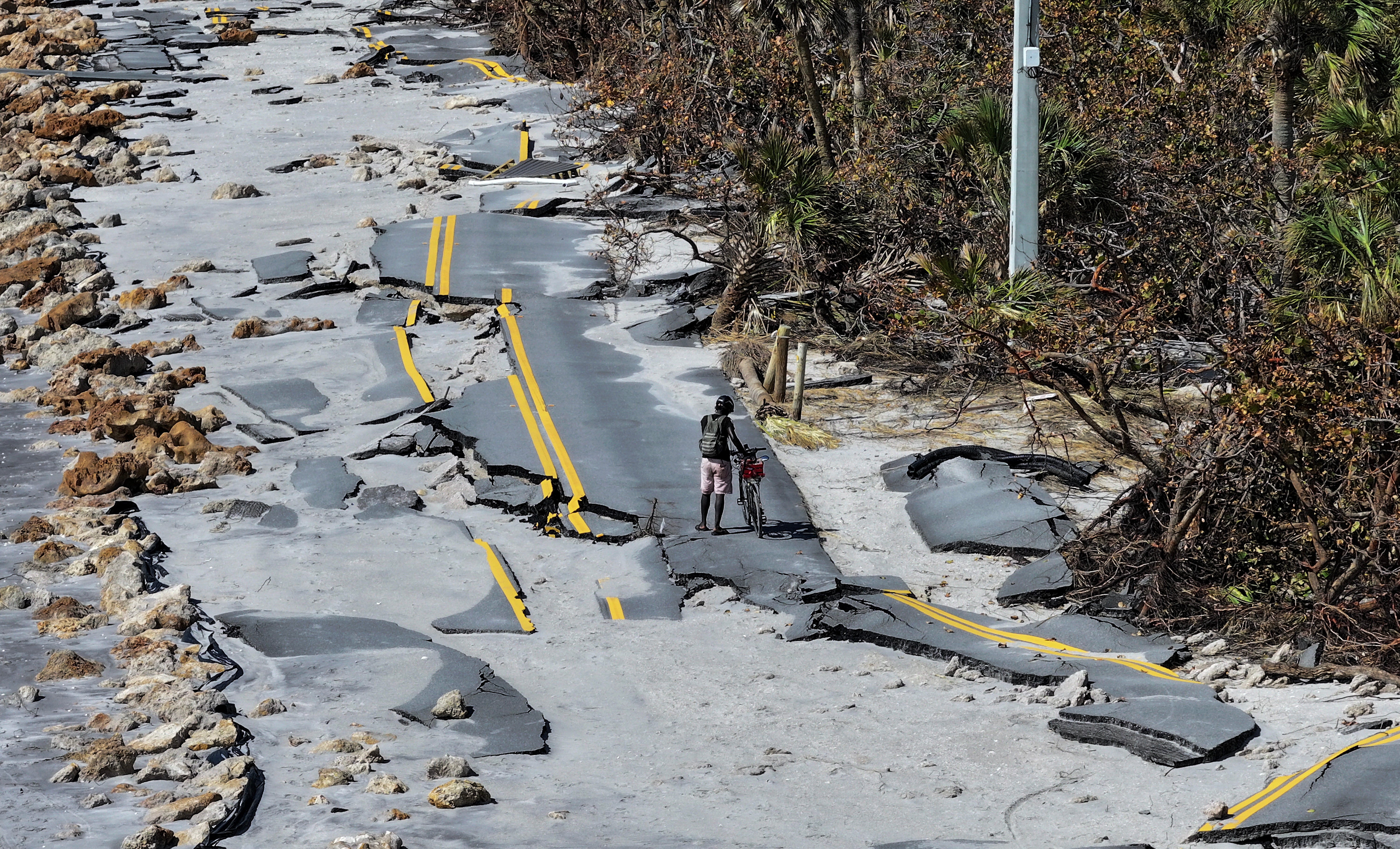Climate change taken off US global threat list for the first time in over a decade
March 26, 2025
For the first time in more than a decade, climate change has been left out of the U.S. intelligence community’s annual assessment of threats to the nation.
The reason why remains unclear, but the change is notably line with the priorities of the Trump administration. The administration has been working to systematically omit climate change from its vocabulary across multiple federal agencies.
Director of National Intelligence Tulsi Gabbard told members of the Senate Intelligence Committee Tuesday that for the intelligence community to be aware of the environment that they’re operating on “is a given” and that the report was “focused very directly on the threats that we deem most critical to the United States and our national security.”
“What I focused this annual threat assessment on, and the [intelligence community] focused this threat assessment on, are the most extreme and critical direct threats to our national security,” she explained, responding to pressing questions from Democratic Maine Sen. Angus King.
Gabbard said she did not recall instructing the intelligence community to avoid mentioning climate change in the 31-page report.

As a Democratic presidential candidate and a representative of Hawaii, Gabbard was mixed on the issue. In 2017, she introduced the Off Fossil Fuels for a Better Future Act, that would require 100 percent clean, renewable energy-sourced electricity in the U.S. by 2035, a moratorium on new fossil fuel projects, a ban on fossil fuel exports and 100 percent zero-emissions car sales by the same year.
In 2019, she acknowledged the need to “save [Earth] from the worst effects of climate change.” That year, she blamed hyper-partisanship for a lack of progress on climate action.
Just a few years later, following the devastating Maui wildfires in her home state, Gabbard told Fox News that “blaming climate change for everything is just another way for politicians to try to evade responsibility.” In 2024, she told TV host Bill Maher that the “true existential threat to humanity” instead of climate change “is the fact that we are closer to nuclear holocaust now than we ever have been before.”
The report prioritizes threats from “nonstate transnational criminals and terrorists,” as well “major state actors.”

“A diverse set of foreign actors are targeting U.S. health and safety, critical infrastructure, industries, wealth, and government. State adversaries and their proxies are also trying to weaken and displace U.S. economic and military power in their regions and across the globe,” it says.
However, climate change is also increasingly targeting U.S. health, safety, critical infrastructure and much more – in addition to that of the global community.
“Security concerns linked to climate change include impacts on food, water and energy supplies, increased competition over natural resources, loss of livelihoods, climate-related disasters, and forced migration and displacement,” the United Nations Environment Program said, noting that few examples of approaches that address specific risks at the intersection of climate change and insecurity exist.
In the U.S., sea level rise and extreme weather are affecting military infrastructure and supply chains. A report from Columbia University’s Climate School noted that climate change also threatens to increase the spread of disease, disrupts essential services and that stressors can result in displacement, forced migration and unrest.

America has already seen its first climate migrants, with millions driven from their homes each year following climate change-driven natural disasters such as wildfires, hurricanes and flooding.
In areas that are exposed to wildfires and smoke, residents may have higher cancer risks, and fires are posing a challenge for cancer patients who need care.
High temperatures and other factors are resulting in more severe and frequent harmful algae blooms that can lead to shortness of breath and even death.
Deadly hurricanes churning in the Gulf of Mexico are becoming supercharged by record warm ocean waters each Atlantic hurricane season. Climate change is making extreme weather events worse.
A recent report using data from the Federal Emergency Management Agency found that the U.S. saw the equivalent of 2.5 years in major disasters last year. The British International Institute for Environment and Development said data shows there was a major disaster declaration every four days.
“As global temperatures continue to rise, all levels of government will have no choice but to help people adapt to the realities of climate change. This includes using climate models and impact predictions to inform long-term planning for infrastructure and service delivery,” the institute’s senior climate finance research Sejal Patel said in a statement provided to The Independent.
While current Secretary of Defense Pete Hegseth has said that his department doesn’t “do” climate change, it is one of the largest polluters and the single-largest consumer of energy in the U.S.
Under the former Biden administration, Defense leaders had recognized the need for adaptation, and that climate change and national security are intertwined.
“Climate change is a national security issue, and for the national security community, that declaration is not controversial — it’s fact,” former Deputy Defense Secretary Kathleen Hicks said in 2023.
“You understand and are concerned about how dire environmental conditions can create humanitarian crises, how these circumstances can make nations vulnerable to instability, competition and conflict, and how advancing related innovation and collaboration can ensure our national security,” she told West Point cadets then.
Search
RECENT PRESS RELEASES
Related Post




